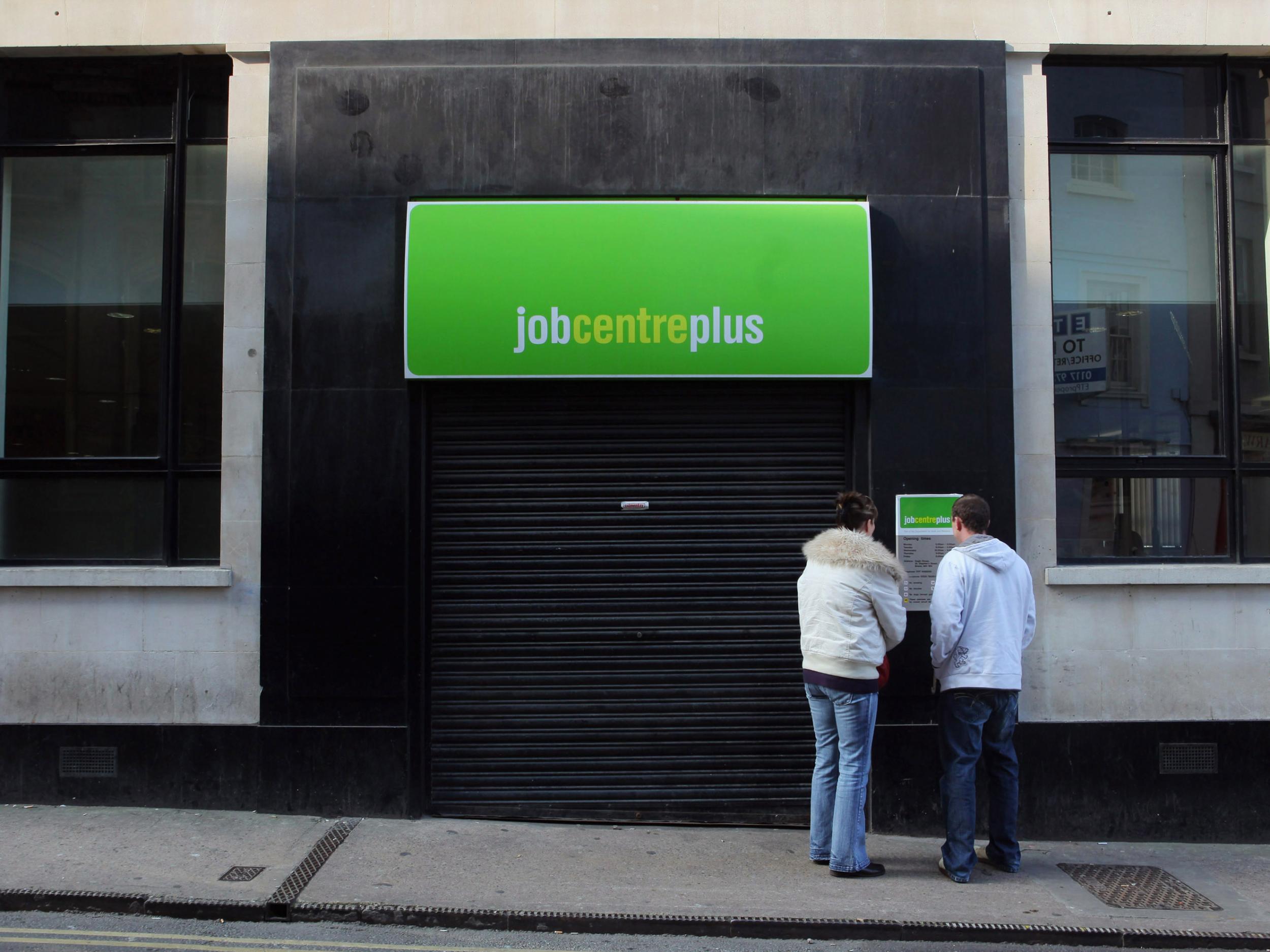No evidence that benefit sanctions work, finds secret DWP report
Government accused of ‘sneaking out’ report that signals failings in universal credit rollout

Your support helps us to tell the story
From reproductive rights to climate change to Big Tech, The Independent is on the ground when the story is developing. Whether it's investigating the financials of Elon Musk's pro-Trump PAC or producing our latest documentary, 'The A Word', which shines a light on the American women fighting for reproductive rights, we know how important it is to parse out the facts from the messaging.
At such a critical moment in US history, we need reporters on the ground. Your donation allows us to keep sending journalists to speak to both sides of the story.
The Independent is trusted by Americans across the entire political spectrum. And unlike many other quality news outlets, we choose not to lock Americans out of our reporting and analysis with paywalls. We believe quality journalism should be available to everyone, paid for by those who can afford it.
Your support makes all the difference.There is “no evidence” that benefit sanctions encourage claimants to get into work or increase their earnings, according to a government report published last month.
The Department for Work and Pensions (DWP) has been accused of “sneaking out” the findings, which cast doubt on the effectiveness of a key element of its flagship universal credit system.
The report, published with no ministerial announcement on 12 September, shows docking benefits as a punishment for alleged failures to comply with Jobcentre Plus rules does not encourage claimants to apply for additional work, and in some cases “damages the relationship between the work coach and the claimant”.
Frank Field, chair of the Work and Pensions Committee, accused ministers of trying to bury the findings rather than give parliament the chance to debate how to better help low-paid workers.
“Rather than set out a bold plan to help low-paid workers earn more money – with more direct support being offered as opposed to terrifying the life out of them with the threat of sanctions – the DWP has decided to sneak out this report without giving the House of Commons an opportunity to debate its contents or the actions that are required on the back of it,” he said.
“Under universal credit, sanctions are being used for the first time ever against low-paid workers as a means of pushing them to increase their hours or move jobs.
“This report shows these sanctions have been largely ineffective and that this new element of the benefits system needs to be put right quickly.”
The ongoing universal credit rollout will see three million people currently receiving tax credits and disability benefits moved on to universal credit from next April.
Mr Field said if universal credit were to be built into a “line of defence against poverty, rather than an agent in its creation”, a more careful application of sanctions would require “urgent attention”.
He added: “Likewise, any new service to help the low-paid should be built around the provision by a dedicated caseworker of information, advice and guidance, as part of a clear and agreed contract which is aimed at helping them to earn more money and, crucially, overcoming the barriers that currently prevent them from being able to do so.”
It comes after a major report from the UK’s biggest food bank network found the rollout of universal credit would trigger an explosion in food bank use, with data showing that moving onto the new welfare support was the fastest growing cause of food bank referrals.
The Trussell Trust said urgent changes to the new welfare system were needed to protect vulnerable claimants from falling into hardship or dropping out of the benefit system altogether.
Garry Lemon, director of policy at the Trussell Trust, said: “We owe it to ourselves to have a benefits system that gives us support when we need it most, and ensures everyone has enough money to afford the absolute essentials.
“Yet our research shows that the more people are sanctioned, the more they need foodbanks. On top of this, government’s own research shows that sanctioning under universal credit has no effect in encouraging people to progress in work.
“With the next stage of universal credit about to rollout to three million people, it is vital that we learn from evidence on the ground and avoid the mistakes of the past.”
Margaret Greenwood, Labour’s shadow work and pensions secretary, said it was “shocking” that the government was sanctioning working people who are “just trying to do the right thing”.
She said: “This report shows that there is no evidence that sanctioning helps people increase their earnings. Meanwhile, wages are still below 2008 levels and millions of people are stuck in insecure work.
“Universal credit is clearly failing in its current form. Labour is committed to a root-and-branch review of the social security system to ensure it tackles poverty and provides support when people need it.”
The benefit sanctions system has long been fiercely criticised for causing hardship and depression, often on flimsy evidence of wrongdoing – and with little proof that they work.
In a damning report in 2016, the National Audit Office castigated the DWP for failing to monitor people whose benefits had been docked and suggested the system cost more money than it saved.
A DWP spokesperson said: “The ‘in work progression trials’ helped encourage claimants to increase their hours, seek out progression opportunities and take part in job-related training.
“The trials delivered positive results for many of the lowest paid people who claim universal credit and we are now considering the findings.”
Join our commenting forum
Join thought-provoking conversations, follow other Independent readers and see their replies
Comments